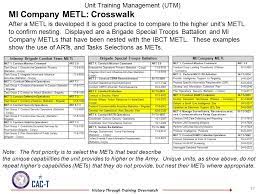
This thread on River Crossing Operations (RCOs) by my friend and colleague @WarintheFuture is excellent!
MG Ryan speaks eloquently to the doctrine & training requirements of something as difficult as an RCO.
That comes about due to a METL assessment!
What's that? A 🧵 1/
MG Ryan speaks eloquently to the doctrine & training requirements of something as difficult as an RCO.
That comes about due to a METL assessment!
What's that? A 🧵 1/
https://twitter.com/WarintheFuture/status/1525252736757153792
METL is a commander's prediction of what missions his/her unit will likely face in combat related to an anticipated mission.
After analyzing any mission, Commanders identify a "Mission Essential Task Lists" of MANY essential tasks they believe they must accomplish in combat. 2/
After analyzing any mission, Commanders identify a "Mission Essential Task Lists" of MANY essential tasks they believe they must accomplish in combat. 2/

Now those tasks are dependent on
-the size/type of unit (Division, Brigade, armor, infantry, engineer, etc)
-the area where they think they may go
-what the terrain may be like
-how the enemy will fight
-most importantly, anticipated mission from a higher commander 3/
-the size/type of unit (Division, Brigade, armor, infantry, engineer, etc)
-the area where they think they may go
-what the terrain may be like
-how the enemy will fight
-most importantly, anticipated mission from a higher commander 3/
Example, the METL for a Brigade Commander with a mission to attack an enemy in a country with rivers, obstacles & a hardened enemy may consist of:
-Deliberate attack
-Hasty defense
-River crossings
-Integrate air & artillery into maneuver scheme
-Conduct exploitation...etc 4/
-Deliberate attack
-Hasty defense
-River crossings
-Integrate air & artillery into maneuver scheme
-Conduct exploitation...etc 4/
All of those potential METL tasks are in an unclassified doctrinal publication (globalsecurity.org/military/libra…), with a bunch of associated subtasks.
Commanders determine which one applies most to them...& that starts a process.
Here's a page out of the manual: 5/
Commanders determine which one applies most to them...& that starts a process.
Here's a page out of the manual: 5/
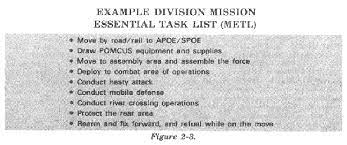
As a Division Commander, I would determine what tasks I might be asked to perform in a specific contingency plan.
I'd get that approved by my boss (a Corps Commander), he'd approve, then I'd relay to my subordinates.6/
I'd get that approved by my boss (a Corps Commander), he'd approve, then I'd relay to my subordinates.6/
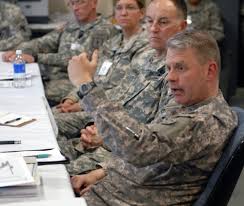
Then, every unit in the division would analyze that METL & determined how they - as units from Brigades to Companies - would contribute to helping me accomplish the division mission.
For example, here's a generic example of a METL tasks for an infantry battalion: 7/
For example, here's a generic example of a METL tasks for an infantry battalion: 7/
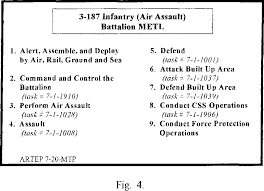
Commanders at different levels hold something called a quarterly training brief with his/her subordinate units to determine:
1) what tasks they identified as important
2) how they plan on training for each of those tasks.
3) what they need for support
Wait, there's more! 9/
1) what tasks they identified as important
2) how they plan on training for each of those tasks.
3) what they need for support
Wait, there's more! 9/
In theory, after each "headquarters" (commanders at Division down to company) identify their unit's tasks, status (trained or untrained), 7 support, the small unit LEADERS (platoon leaders, squad leaders, etc) start training on THEIR tasks. 10/ 
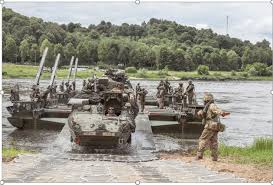
While a Division Commander may say "river crossing" is one key tasks...
& unit commanders find supporting tasks contribute to a successful river crossing (as @WarintheFuture pointed out),
...it's the YOUNG LEADERS (lieutenants & sergeants) who train on the intricacies! 11/
& unit commanders find supporting tasks contribute to a successful river crossing (as @WarintheFuture pointed out),
...it's the YOUNG LEADERS (lieutenants & sergeants) who train on the intricacies! 11/
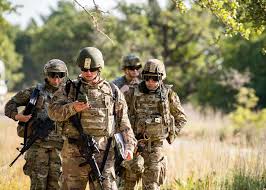
Young leaders train & pull things together to integrate different tasks.
In @WarintheFuture example of various steps of a successful RCO, there are different teams doing "recon, supress, obscure, secure, reduce, assault"...
And all must be well-trained, well-led, integrated.12/
In @WarintheFuture example of various steps of a successful RCO, there are different teams doing "recon, supress, obscure, secure, reduce, assault"...
And all must be well-trained, well-led, integrated.12/
That leadership, training, integration of various subtasks for JUST ONE SIMPLE METL TASK OF MANY is exceedingly difficult.
But executing that one "simple" task was critical to accomplishing the mission.
And the Russians failed. 13/
But executing that one "simple" task was critical to accomplishing the mission.
And the Russians failed. 13/
As I've said many times, the leadership & training I saw in limited exposure to Russian training/exercises told me the events were actually highly choreographed unopposed "demonstrations."
They were lying to themselves. This is all - all - BS. 14/
They were lying to themselves. This is all - all - BS. 14/
As a tanker, I was always particularly enamored with the Russian tanks with snorkeling devices (see the video in #14 at about the 7:00 mark and the pic below)...
...especially when I was at a demonstration & saw they paved a route underwater for the tanks to drive across. 15/
...especially when I was at a demonstration & saw they paved a route underwater for the tanks to drive across. 15/
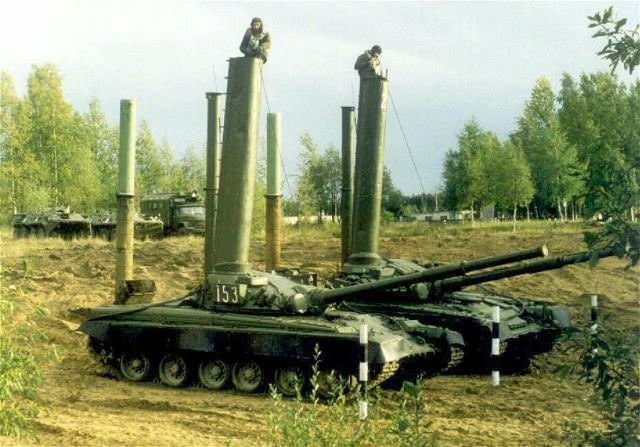
Performance in combat requires trust in people, doctrine, equipment...that requires leadership.
Performance in combat requires hard training to specific tasks to standard...and that takes time, hard work & a professional army. 16/
Performance in combat requires hard training to specific tasks to standard...and that takes time, hard work & a professional army. 16/
Again, @WarintheFuture described the steps & how hard it is to conduct an RCO.
Other missions (attack, defend, breech, air integration, resupply on the move, etc, etc), take similar effort.
The RU army has neither the leadership or the training base to accomplish those. 17/
Other missions (attack, defend, breech, air integration, resupply on the move, etc, etc), take similar effort.
The RU army has neither the leadership or the training base to accomplish those. 17/
It appears the RU Army thought they could just go in and destroy & kill.
They've been criminally good at that.
But they are also destroying themselves - and their nation - in the process, as evidenced by the action at Severskyi Donets. 18/18
They've been criminally good at that.
But they are also destroying themselves - and their nation - in the process, as evidenced by the action at Severskyi Donets. 18/18
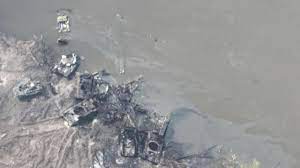
• • •
Missing some Tweet in this thread? You can try to
force a refresh

